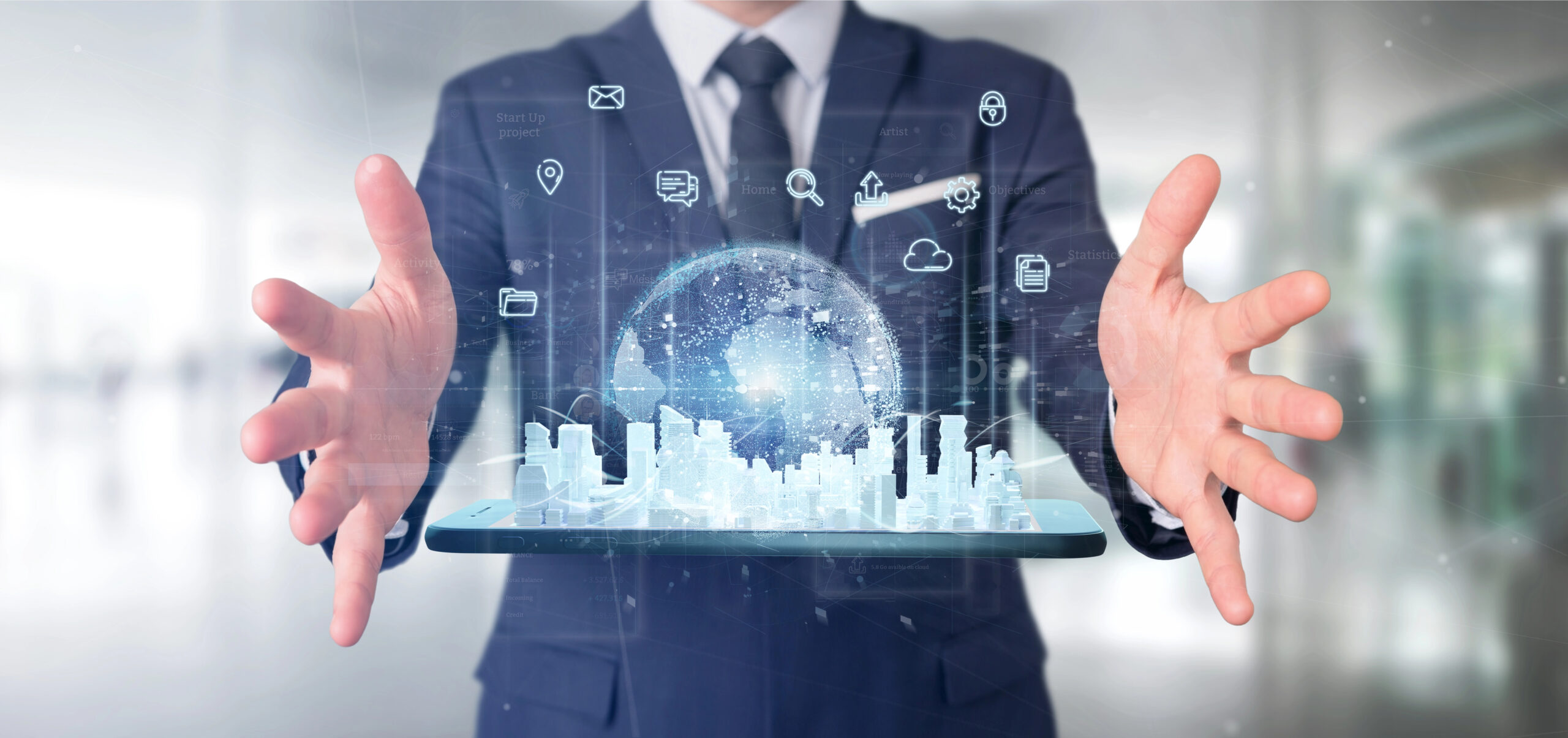Navigating the bustling streets of Tokyo or Osaka, we may not realize the intricate web of Internet of Things (IoT) technologies working behind the scenes to enhance our urban experience. Japan, a global leader in technological innovation, is pioneering the implementation of IoT solutions for smart cities. These cutting-edge systems are revolutionizing urban living by optimizing everything from traffic flow to energy consumption. In this article, discover how Japan is harnessing the power of IoT to create more efficient, sustainable, and livable urban environments. Explore how these smart city initiatives are shaping the future of Japanese metropolises and setting a new standard for urban development worldwide.
The Rise of Smart Cities in Japan
Pioneering Urban Innovation
- Japan has emerged as a global leader in smart city development, leveraging Internet of Things (IoT) technologies to transform urban landscapes. You’ll find that Japanese cities are increasingly adopting intelligent systems to address modern challenges and enhance quality of life. This technological revolution is reshaping everything from transportation networks to energy management, creating more efficient and sustainable urban environments.
Innovative Solutions for Urban Challenges
- In Japanese smart cities, you’ll encounter a wide array of IoT-enabled solutions. Traffic management systems use real-time data to optimize flow and reduce congestion, while smart energy grids balance supply and demand to minimize waste. Public safety is enhanced through advanced surveillance and emergency response systems. These innovations not only improve daily life for residents but also contribute to Japan’s goals of reducing carbon emissions and creating more resilient urban centers.
Case Studies: Tokyo and Beyond
- Tokyo, Japan’s largest metropolis, serves as a prime example of smart city implementation. You’ll see how the city has integrated IoT technology into its infrastructure, from smart streetlights that adjust brightness based on foot traffic to waste management systems that optimize collection routes. However, smart city initiatives aren’t limited to the capital. Smaller cities like Fukuoka and Aizuwakamatsu are also adopting innovative solutions tailored to their specific needs and demographics.
Challenges and Future Prospects
- While Japan’s smart city initiatives are impressive, you should be aware that they face challenges such as data privacy concerns and the need for substantial infrastructure investments. Despite these hurdles, the future of smart cities in Japan looks promising. As IoT technology continues to evolve, you can expect to see even more sophisticated urban solutions emerging, potentially setting new global standards for smart city development.
How IoT is Revolutionizing Japanese Cities

In Japan, the Internet of Things (IoT) is transforming urban landscapes into smart, efficient, and sustainable environments. You’ll find that Japanese cities are leveraging IoT technologies to address various urban challenges and enhance the quality of life for their residents.
Smart Infrastructure and Transportation
- IoT is revolutionizing Japanese city infrastructure and transportation systems. You’ll notice intelligent traffic management systems that use sensors and cameras to monitor traffic flow in real-time. These systems adjust traffic light timings and provide alternative route suggestions, significantly reducing congestion and commute times. Moreover, smart parking solutions guide you to available spaces, minimizing the time spent searching for parking and reducing vehicle emissions.
Energy Efficiency and Sustainability
- Japanese cities are implementing IoT-enabled smart grids and energy management systems to optimize power consumption. You’ll benefit from smart meters that provide real-time data on your energy usage, allowing you to make informed decisions about your consumption patterns. Additionally, IoT sensors in public spaces automatically adjust lighting and climate control based on occupancy and weather conditions, contributing to significant energy savings.
Public Safety and Disaster Management
- IoT plays a crucial role in enhancing public safety and disaster preparedness in Japanese cities. You’ll find advanced surveillance systems that use AI-powered cameras and sensors to detect and report suspicious activities. In the event of natural disasters, IoT-enabled early warning systems provide timely alerts and guide you to safe evacuation routes. These technologies have greatly improved emergency response times and overall urban resilience.
Waste Management and Environmental Monitoring
- Smart waste management systems in Japanese cities use IoT sensors to optimize collection routes and schedules. You’ll notice fewer overflowing bins and more efficient waste collection processes. Furthermore, IoT devices monitor air and water quality in real-time, allowing authorities to take prompt action against pollution and ensure a healthier urban environment for you and your fellow residents.
By embracing IoT technologies, Japanese cities are setting new standards for urban living, creating more livable, efficient, and sustainable environments for their citizens.
Key Areas Where IoT is Having an Impact
IoT technologies are revolutionizing various aspects of urban life in Japan’s smart cities. As you explore these innovations, you’ll discover how they’re reshaping the urban landscape and improving the quality of life for residents.
Traffic Management and Transportation
- IoT is transforming the way you navigate Japanese cities. Smart traffic lights equipped with sensors optimize traffic flow, reducing congestion and commute times. Real-time data from connected vehicles and public transportation systems enable you to make informed travel decisions. Additionally, IoT-enabled parking solutions help you locate available spaces quickly, minimizing the time spent searching for parking.
Energy Efficiency and Sustainability
- You’ll notice a significant impact of IoT on energy management in smart cities. Smart grids and meters allow for more efficient distribution and consumption of electricity. IoT sensors in buildings automatically adjust lighting and temperature based on occupancy and weather conditions, reducing energy waste. These technologies not only lower your utility bills but also contribute to Japan’s sustainability goals.
Public Safety and Security
- IoT is enhancing your safety in urban environments. Connected surveillance cameras and facial recognition systems help law enforcement agencies monitor public spaces more effectively. Smart street lighting adjusts brightness based on pedestrian activity, improving visibility, and deterring crime. In emergencies, IoT-enabled early warning systems can alert you to potential dangers, such as earthquakes or tsunamis, allowing for quicker response times.
Waste Management and Environmental Monitoring
- Your urban environment is becoming cleaner and more sustainable through IoT applications. Smart waste bins equipped with sensors optimize collection routes, reducing fuel consumption and improving sanitation. IoT devices monitor air and water quality in real-time, allowing authorities to take prompt action when pollution levels rise. These technologies contribute to creating a healthier living environment for you and your community.
By leveraging IoT in these key areas, Japanese smart cities are setting new standards for urban living, offering you a more efficient, sustainable, and comfortable lifestyle.
Case Studies of IoT for Smart Cities in Japan
1. Yokohama Smart City Project
Yokohama, Japan’s second-largest city, has implemented an impressive IoT-driven smart city initiative. You’ll find that the Yokohama Smart City Project (YSCP) focuses on energy management and sustainability. Through this program, the city has deployed a network of smart meters and sensors to monitor and optimize energy consumption across residential, commercial, and industrial sectors. The project has resulted in a significant reduction in carbon emissions and improved energy efficiency, serving as a model for other urban centers in Japan and globally.
2. Fujisawa Sustainable Smart Town
Another noteworthy example is the Fujisawa Sustainable Smart Town (SST), in Kanagawa Prefecture. This innovative project demonstrates how IoT can be integrated into urban planning from the ground up. You’ll observe that Fujisawa SST incorporates smart home technologies, renewable energy systems, and electric vehicle infrastructure. The town’s energy management system utilizes IoT sensors and data analytics to balance energy supply and demand, resulting in a 70% reduction in CO2 emissions compared to 1990 levels.
3. Kashiwa-no-ha Smart City
The Kashiwa-no-ha Smart City project in Chiba Prefecture showcases how IoT can enhance urban resilience and quality of life. You’ll find that this initiative focuses on three main areas: environmental symbiosis, health and longevity, and new industry creation. The city employs a comprehensive Area Energy Management System (AEMS) that leverages IoT to optimize energy use across the entire district. Additionally, the project incorporates smart healthcare solutions, utilizing wearable devices and IoT sensors to monitor residents’ health and provide personalized wellness recommendations.
These case studies highlight Japan’s commitment to leveraging IoT to create smarter, more sustainable urban environments. By implementing these technologies, Japanese cities are paving the way for a future where urban living is more efficient, environmentally friendly, and responsive to citizens’ needs.
The Future of IoT for Smart Cities in Japan
As you look ahead, the future of IoT for smart cities in Japan appears incredibly promising. With its technological prowess and forward-thinking approach, Japan is poised to revolutionize urban living through innovative IoT solutions.
Enhancing Urban Infrastructure
- In the coming years, you’ll witness a significant transformation in Japan’s urban infrastructure. IoT sensors will be seamlessly integrated into roads, buildings, and public spaces, collecting real-time data on everything from traffic patterns to air quality. This wealth of information will enable city planners to make data-driven decisions, optimizing resource allocation and improving overall urban efficiency.
Smart Energy Management
- The future of IoT in Japanese smart cities will prioritize sustainable energy consumption. You’ll see advanced smart grids that leverage IoT technology to balance energy supply and demand in real-time. This will not only reduce energy waste but also facilitate the integration of renewable energy sources, helping Japan meet its ambitious climate goals.
Personalized Urban Experiences
- As IoT technology evolves, you can expect increasingly personalized urban experiences. Smart city applications will use AI and machine learning to analyze data from various IoT devices, tailoring services to individual needs. From customized public transportation routes to personalized healthcare recommendations, these innovations will significantly enhance your quality of life in Japanese cities.
Challenges and Opportunities
- While the future looks bright, it’s important to acknowledge the challenges that lie ahead. Issues such as data privacy, cybersecurity, and the digital divide will need to be addressed. However, these challenges also present opportunities for innovation and collaboration between government, industry, and academia. As Japan continues to invest in IoT research and development, you can anticipate groundbreaking solutions that will set new global standards for smart city implementation.
Summing It Up
As you have seen, Japan’s embrace of IoT for smart cities is transforming urban life across the nation. By leveraging cutting-edge technologies, Japanese cities are becoming more efficient, sustainable, and livable. The integration of IoT into infrastructure, transportation, and public services offers a glimpse into the future of urban development. As these initiatives continue to evolve and expand, you can expect to see even more innovative solutions emerge. Japan’s smart city projects serve as a model for other countries seeking to enhance urban living through technology. By staying informed about these advancements, you can better understand the potential impact of IoT on your community and prepare for the cities of tomorrow.
More Stories
Agent Hospital: China’s AI Doctors Redefine Global Healthcare Frontiers
China’s “Agent Hospital” emerges as a revolutionary force in healthcare. Developed by Tsinghua University, this groundbreaking facility boasts the world’s first fleet of fully AI-driven medical professionals.
Fintech Alliance PH Welcomes Paynamics to Strengthen Digital Payments Ecosystem
In the Philippines' financial technology sector, Fintech Alliance PH announces a pivotal collaboration with Paynamics Technologies Inc. This partnership signals...
Spotify Unveils ‘Plays’ Count, Turning Podcasts into a Popularity Contest
Spotify has taken a bold step by unveiling a new “plays” count feature for podcasts, a move that promises to redefine the dynamics of content popularity. This innovation introduces a level of transparency akin to the metrics seen on video platforms, turning podcasting into a competitive arena where every play counts.
AI Max: Google’s Next Leap in Predictive Search Advertising
AI Max revolutionizes the way advertisers connect with users by harnessing sophisticated algorithms to predict search intent with unprecedented accuracy.
India’s Quantum Leap: IBM and TCS Launch Nation’s Largest Quantum Computer at Quantum Valley
IBM and Tata Consultancy Services (TCS) have partnered to install India’s largest quantum computer. This advanced system will be located at the upcoming Quantum Valley Tech Park in Andhra Pradesh.
Volt and Shopify Unveil One-Click PayTo Checkout for Australian Merchants
By integrating the innovative one-click PayTo system, this partnership promises a streamlined payment process, eliminating the friction often associated with online transactions.


